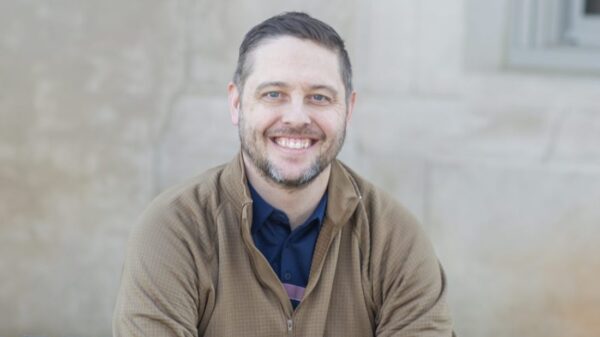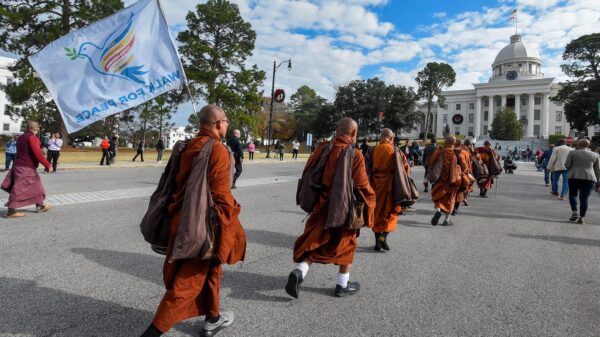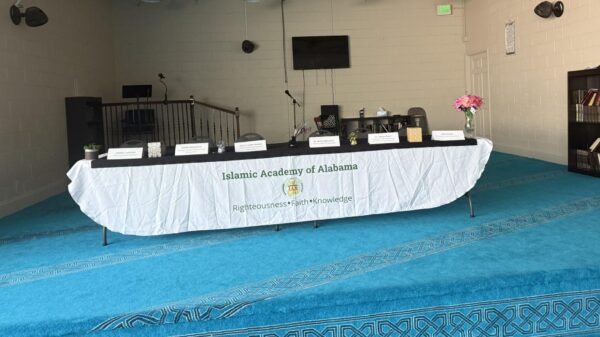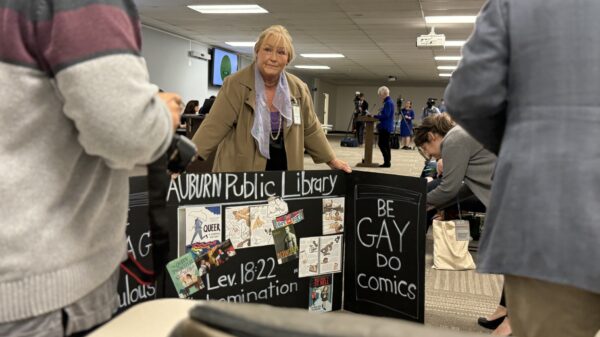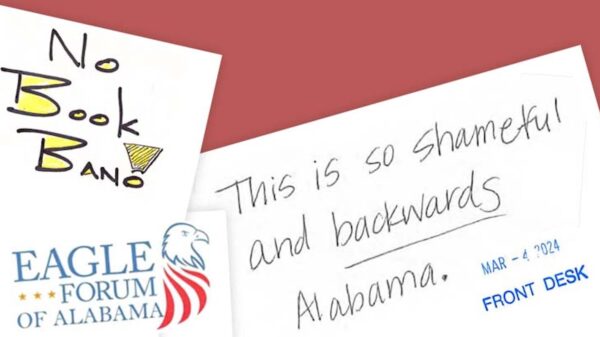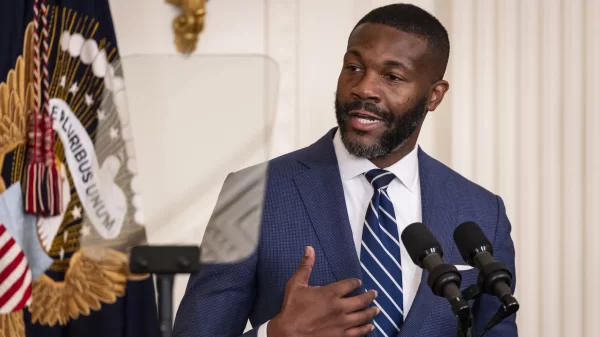By Chip Brownlee
Alabama Political Reporter
MONTGOMERY—The Alabama Legislature will convene in little more than a month. As lawmakers continue prefiling bills and preparing for the 2017 Legislative Session, a new report from the Human Rights Campaign shows Alabama still lagging behind in LGBTQ protections.
The State Equality Index, an annual comprehensive report released by HRC rating each state’s laws and policies that affect LGBTQ people and their families, recently placed Alabama in the “High Priority to Achieve Basic Equality” category — the lowest category on the scorecard.
“What this report showed us is what we see every day in our work, which is that Alabama has a long way to go,” said Eva Kendrick, president of HRC Alabama. “A big piece of that is working at the municipal- and state-level to promote positive policies related to LGBTQ people that can ensure their full, legal rights. That is all we ultimately seek to do.”
Alabama remains one of 30 states in the US that lacks explicit workplace non-discrimination protections on the statewide level to protect LGBTQ employees from being fired for simply coming out as LGBTQ. In a report released in October, the HRC also found no Alabama municipalities had workplace non-discrimination laws either.
Working with cities to pass their own non-discrimination ordinances, Ms. Kendrick said, along with getting LGTBQ people covered under the State’s Hate Crime statutes through the Legislature, are HRC Alabama’s top priorities coming up in 2017.
“The State Equality Index is a good mirror for state elected officials and legislators to see that we are in a high priority to achieve even basic equality,” Ms. Kendrick said. “As we move into the next legislative session, pro-LGBTQ or pro-equality bills should be seen fairly and should be elevated to a place of dialogue and conversation because this is the time more than ever when LGBTQ Alabamians need protections put into place. Not at the federal level, but in their own towns, cities and in their home state.”
Alabama joined 28 other states, including Tennessee, Georgia, Florida and Mississippi, in the report’s lowest category. Three other categories were possible: Building Equality, Solidifying Equality and Working Toward Innovative Equality. Only nine states and DC placed in Working Toward Innovative Equality, the report’s highest ranking.
Some states went in the wrong direction this year, according to the report, thanks largely to new “Religious Freedom” laws, which the HRC says allows for legal discrimination against LGBTQ people, and “bathroom bills” that regulate which restroom transgender individuals can use.
“In many states, opponents of equality are ramping up their efforts to sanction discrimination against LGBTQ people by proposing state-level laws that could undermine existing protections, erode marital rights to legally joined same-sex couples and transgender persons, and prevent cities and towns from passing their own non-discrimination ordinances,” Ms. Kendrick said.
The State’s outdated sodomy laws, laws that discriminate against same-sex couples by criminalizing behaviors with a low or even negligible risks of HIV transmission, and inequality in the State’s age of consent laws also brought Alabama down on its scorecard.
These laws are generally no longer enforced, but they haven’t been repealed by the Legislature.
Another area that kept Alabama out of a higher category was the State’s lack of enumerated statutes that protect LGBTQ people from hate- or bias-motivated crimes, the report says. Rep. Juandalynn Givan, D-Mobile, wants that to change.
Ms. Givan has already prefiled a bill, House Bill 8, which would add crimes motivated by the victim’s sexual orientation, gender identity or gender expression to the State’s hate crimes statutes.
“We here in the State of Alabama have to come into conformity with the reality of the world, not just laws in other states,” Ms. Givan said. “A person’s right to choose who they love exists, and just because you have or use those rights doesn’t mean that you should be assaulted. You should not be brutally beaten, you should not be intimidated by force and you should not be killed.”
Where LGBTQ rights are today, Ms. Givan said, is not much different from where the Civil Rights Movement was in 1963.
“We were considered ‘less than’ because we were of a different skin color,” she said. “I believe that just because you have a different sexual preference, doesn’t mean you don’t deserve to be protected as well. I’m going to keep coming back with a bill like this until we pass some sort of hate-crime legislation that is geared toward LGBTQ people.”
These issues lead Ms. Givan to believe that many Alabamians want to “sweep sexual orientation under the rug” and refuse to address it.
“We consider ourselves as a Bible Belt State. We consider ourselves holier than thou,” Ms. Givan said. “Sometimes we have more dirt on our front porches than anyone else has on theirs. I think we’re some of the biggest hypocrites to walk the face of the Earth.”
Ms. Givan’s bill is not the only legislation proposed for the next session that could affect LGBTQ people in Alabama. Rep. Rich Wingo, R-Tuscaloosa, also prefiled a bill, House Bill 24, that would allow adoption agencies to refuse to place children into the homes of same-sex couples if it goes against their religious convictions.
The bill, which has been proposed three years in a row, would prohibit the State from withholding a license from an adoption or foster agency that denied placement services to same-sex families. Both iterations of the bill failed to pass the Legislature.
The bills were spurred in part by the US Supreme Court’s 2015 ruling in Obergefell v. Hodges that legalized same-sex marriage nationwide, which opened up the doors for millions of same-sex families to adopt in greater numbers across the country.
Mr. Wingo did not immediately return calls for comments on his bill this year, but he said last year that same-sex couples could go to secular adoption and foster agencies if they were refused services from a Christian agency.
His proposed bill wasn’t intended to prevent same-sex couples from being able to adopt, Mr. Wingo said last year.
“It’s not like the gays and lesbians are being discriminated against,” he said last April. “Nobody’s being discriminated against. They have other options.”
Ms. Kendrick said a law like Mr. Wingo’s would just amount to legalized discrimination, whether it be religious or not, by agencies that are often funded by State taxpayer dollars or executive order money and licensed by the State.
“We have over 5,000 children in our State foster and adoption systems that need loving homes,” Ms. Kendrick said.
These bills will be picked up by the Legislature when lawmakers return to Montgomery on Feb. 7.




